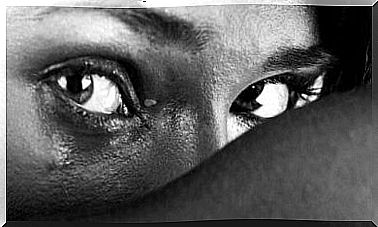What Are The Functions Of The Forensic Psychologist?

What does a forensic psychologist do? Forensic psychology is a branch of psychology. Psychology deals with the mental processes underlying an individual that ultimately guide their conduct. Therefore, it can be deduced that forensic psychology aims to assess an individual’s mental capacities in the judicial sphere.
The forensic psychologist will be the professional responsible for technical assistance to inspectors, judges, lawyers, etc. with regard to the psychological sphere and its relationship with justice. His work aims to study the minds of individuals in relation to the system and domain of justice.
Role of the forensic psychologist
The forensic psychologist participates in the different legal proceedings in which their presence is requested. He will be responsible for gathering the necessary information, examining the individual, preparing inquiries, etc. and, finally, present the evidence and the results obtained. All this for the purpose of answering the questions asked by the judge.

The main function is to try to resolve the doubts of legal professionals. All actors who participate in a judicial process do not have knowledge of all social, relational, scientific areas, etc. Therefore, they need specialists in each of these areas to help them clarify important elements for a correct resolution of the case.
We must not forget that we live in an organic society: there is a great division of labor. Individuals specialize in a particular field, but need knowledge from the rest of society. Thus, a system of functional relationships between different professionals is established. The cooperation of each one is based on the capacities with which they can contribute to help meet the needs of the other.
Scopes in which it participates
The forensic psychologist, as we have already announced, collaborates in the judicial system. Generally, he is a professional associated with criminal proceedings, focusing on his work in the criminal sphere. However, there are many other areas where it is needed:
- Family law. Determine if parents are able to care for their child(ren) in the divorce process; guide the visiting regime; analyze existing dysfunctions that may affect the child due to separation, etc.
- Civil right. Legal incapacities in relation to the free disposal of property, mainly.
- Criminal law. Criminal imputability (if the individual knew what he was doing and acted voluntarily on the basis of that knowledge); effects of violence on the victim; existence of any possible disorder, etc.
- Labor law. Work disability; situations of harassment at work (possible impairment in daily activities); etc.
- Kids. Credibility of testimony; psychological sequelae, etc.
Reporting
The reports are the documents prepared by the experts in which the questions asked by the judge are answered. They serve as expert evidence. The forensic psychologist must make a report when his opinion is required in relation to a legal matter.
The content of the report must be precise and specific, omitting any superfluous detail. In other words, it must directly address the issue of the matter. Likewise, your writing should be clear, trying to avoid using too specific language.
We must not forget that this type of document will be delivered to people not specialized in the world of psychology, nor in the scientific field. Because of this, we shouldn’t be overly technical, as what we want to convey might not be understood.

At the same time, we cannot escape the parameters of objectivity and scientific rigor. Any psychological tests that have been performed must be properly reported. Its usefulness, the way it was carried out, the results obtained, its reliability, etc., should be pointed out.
Professional Profile
Of course, it will be necessary for the forensic psychologist to have a university degree in Psychology. In addition, he must have specialized in this area of knowledge. And that’s not enough. You must have professional training and be aware of the news that appear in this field in different scientific articles.
On the other hand, knowledge in the area of psychology is not only required, it is also necessary to have knowledge of law. Therefore, he is a professional who must know how the process is carried out, as well as the different laws that support it and that, in the same way, determine sanctions that can be applied for bad practice.
But it’s not all about academic knowledge. The forensic psychologist cannot be emotionally involved in the case he is analyzing, as it would tarnish the mission for which he was assigned as an expert. Empathy is also a trait that should be evaluated, as is frustration tolerance. Assertiveness and good oratory are characteristics that count in this area of work.
Finally, the forensic psychologist breaks with the idea that one has the stereotyped profession of the psychologist that series and movies can show. Legal and forensic psychology is a field sometimes unknown, but necessary to resolve issues that require a more scientific point of view.









